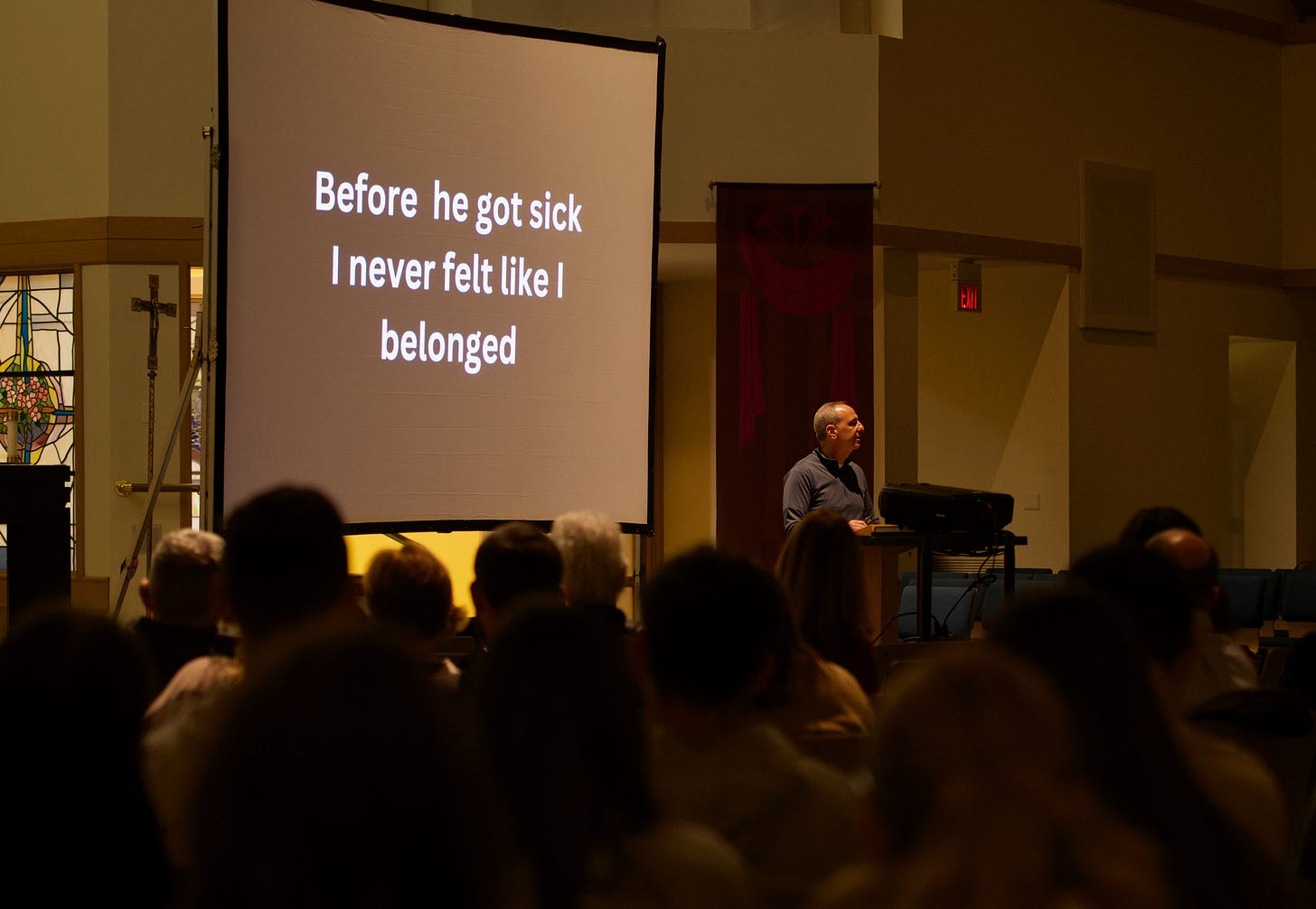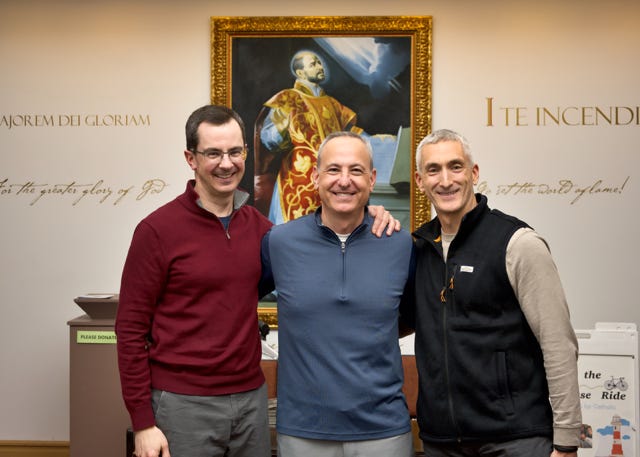Why Listening Is More Powerful Than Speaking
Still Glowing (And Growing)
I’m still glowing from last week’s Ignatian Seminar keynote at Fairfield.
Not because of the praise (though the kind words were humbling and deeply appreciated), but because the experience marked something significant for me—a shift, a milestone, a moment when, for the first time, I could finally say: I belong up here.
Here’s what the event leader wrote afterward on LinkedIn:
“Mark, when we started talking about this keynote about a year ago, I mentioned to you that usually the Ignatian Seminar speaker becomes somewhat of a core memory for the students of that class. You shared some concerns about not being sure you could live up to that, but you SURPASSED it!! You were outstanding last night. I am stuck reflecting on the comment you made: 'You can really make something of yourself here at Fairfield.' Thank you again!!!!”
Imposter Syndrome in a Microphone
Since Ten Days With Dad was published, I’ve done my fair share of speaking engagements. But imposter syndrome? It lingers. And it’s ironic because so many of my talks focus on helping people overcome feelings just like that.
But growth is rarely instant. It’s built day by day, one step, one rep, one quiet act of courage at a time. We’re all still figuring it out. And that night, on the stage at Egan Chapel, I realized that I belong there, that my story matters, that my message has value, and that’s what I wanted them to feel, too.
I don’t love the word “authority.” I don’t see myself as one. But I do have experiences—perspectives, even—that I now know are worthy of sharing. My goal isn’t to be perfect. My goal is to be useful.
Authors and speakers often say, “If my words impact even one person, then I’ve done my job.” This is true. But if I’m being completely honest?
I want to impact everyone.
I want to change lives with my talks, my books, and this newsletter. That’s probably naïve—or maybe just ambitious—but it’s who I am. And I’m okay with that.
4 Takeaways from the Talk
Here are some personal reflections from last week’s experience that might be helpful to you:
1. Write (and read) every day.
When a student asked for writing advice, I said: write every day—whether it’s for five minutes or fifty. Writing is a muscle. If you want it to grow, you need to use it. I should have added: read, too. Read in your preferred genre. Study what you love—and what you don’t. Pay attention to what moves you—and what doesn’t. Also? Write like nobody’s going to read it. That’s when your truth comes through. Don’t censor yourself. Write like no one’s watching. Because ultimately, it’s for you.
2. Don’t always say what you want to say.
Typically, I close my talks with the Ten Commandments of Living—lessons learned from my dad and during my time caring for him. But this time, my coach Mike Verret encouraged me to swap them out for a more focused call to action. It made a big difference. The message was clearer and more engaging. Sometimes, the message we feel compelled to share isn’t the one the audience needs to hear. That’s true not just on stage but in life.
3. Ask questions. And listen—really listen.
I opened and closed the talk with questions, not just to engage the audience but also because asking good questions shows you care. Anyone can talk, but it’s listening—really listening—that sets you apart. Listening is how you build relationships. It’s how people remember you.
4. Give praise more than you seek it.
For most of my life, I craved recognition. I got frustrated when it didn’t come. But after caring for my dad, I realized something: giving praise is far more powerful than receiving it. A thoughtful thank-you—especially a handwritten note—is more impactful than any award. Thank you, Jim Fitzpatrick, for the handwritten note I received in the mail today. It meant a lot.
This week reminded me why I write, speak, and share stories—not to hear applause or fill a room but to help someone, somewhere, feel less alone in their journey.
We don’t always get it right. But we get better.
One word. One message. One talk at a time.
See you next week.





